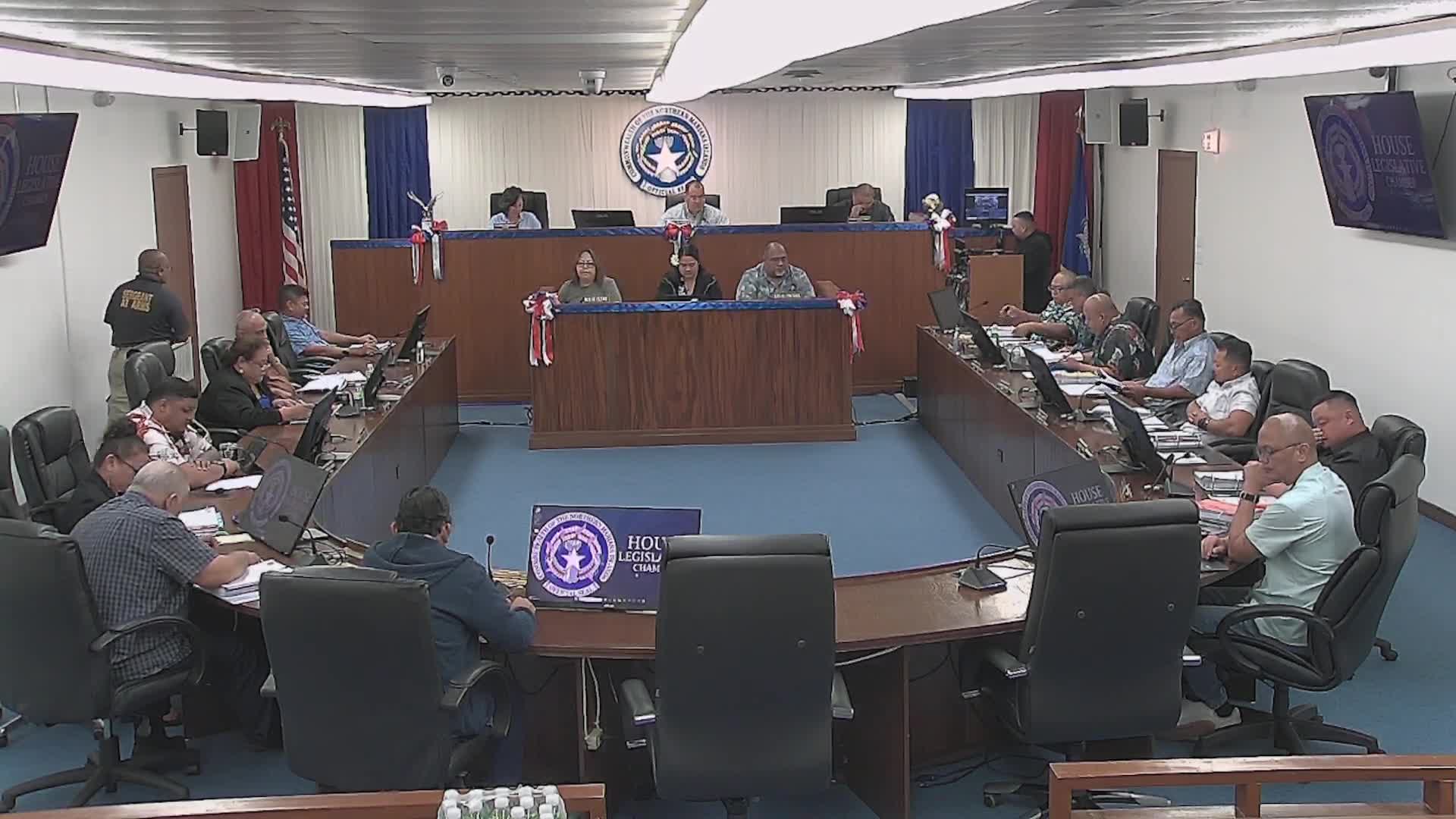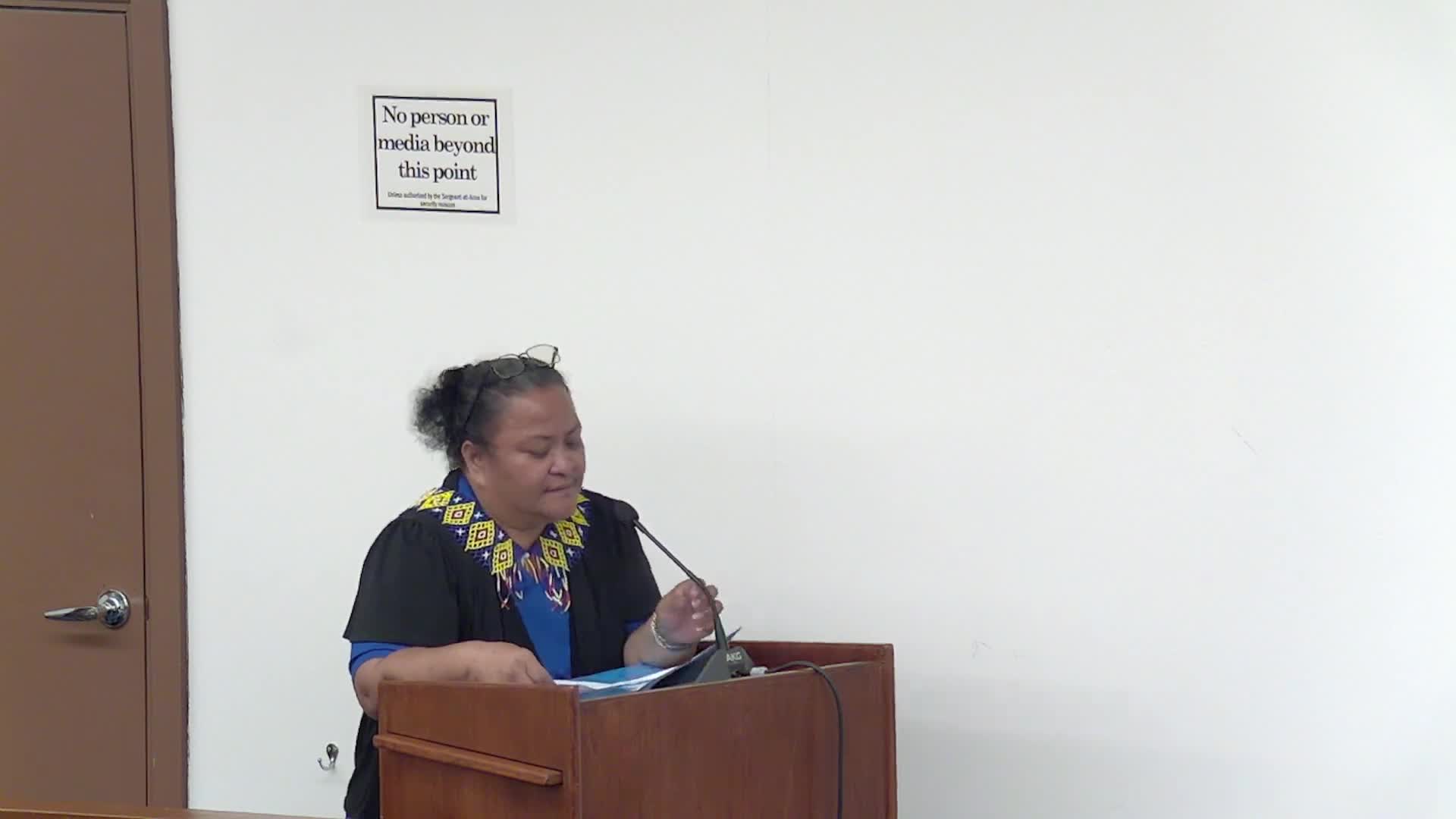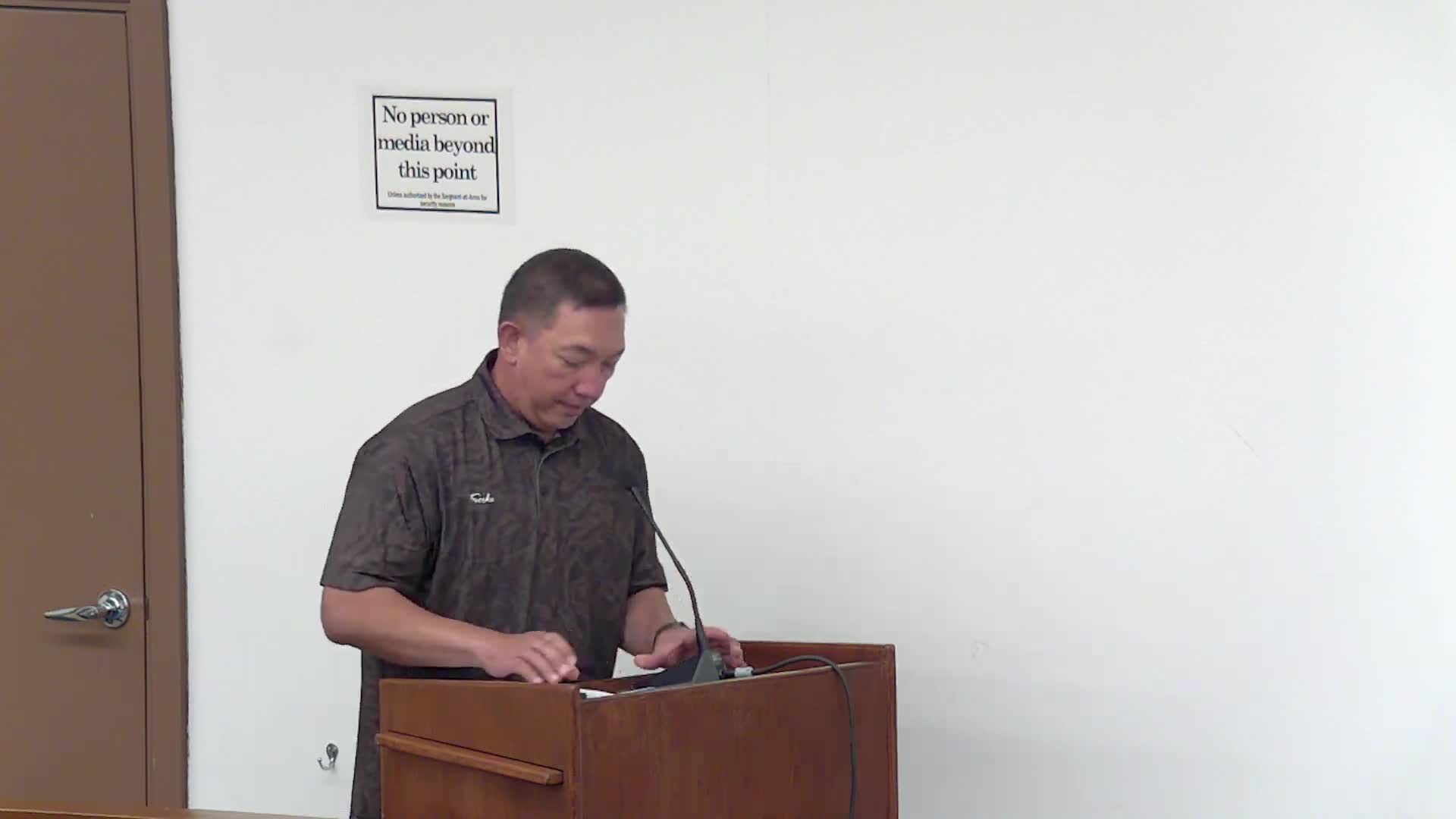Article not found
This article is no longer available. But don't worry—we've gathered other articles that discuss the same topic.

House actions: journal adopted; resolutions and bill passed on May 15, 2025

Public commenter urges review of developer's tax on military construction; House members prepare joint resolution

House adopts resolution urging NOAA to include Northern Mariana descent people in Mariana Trench research

